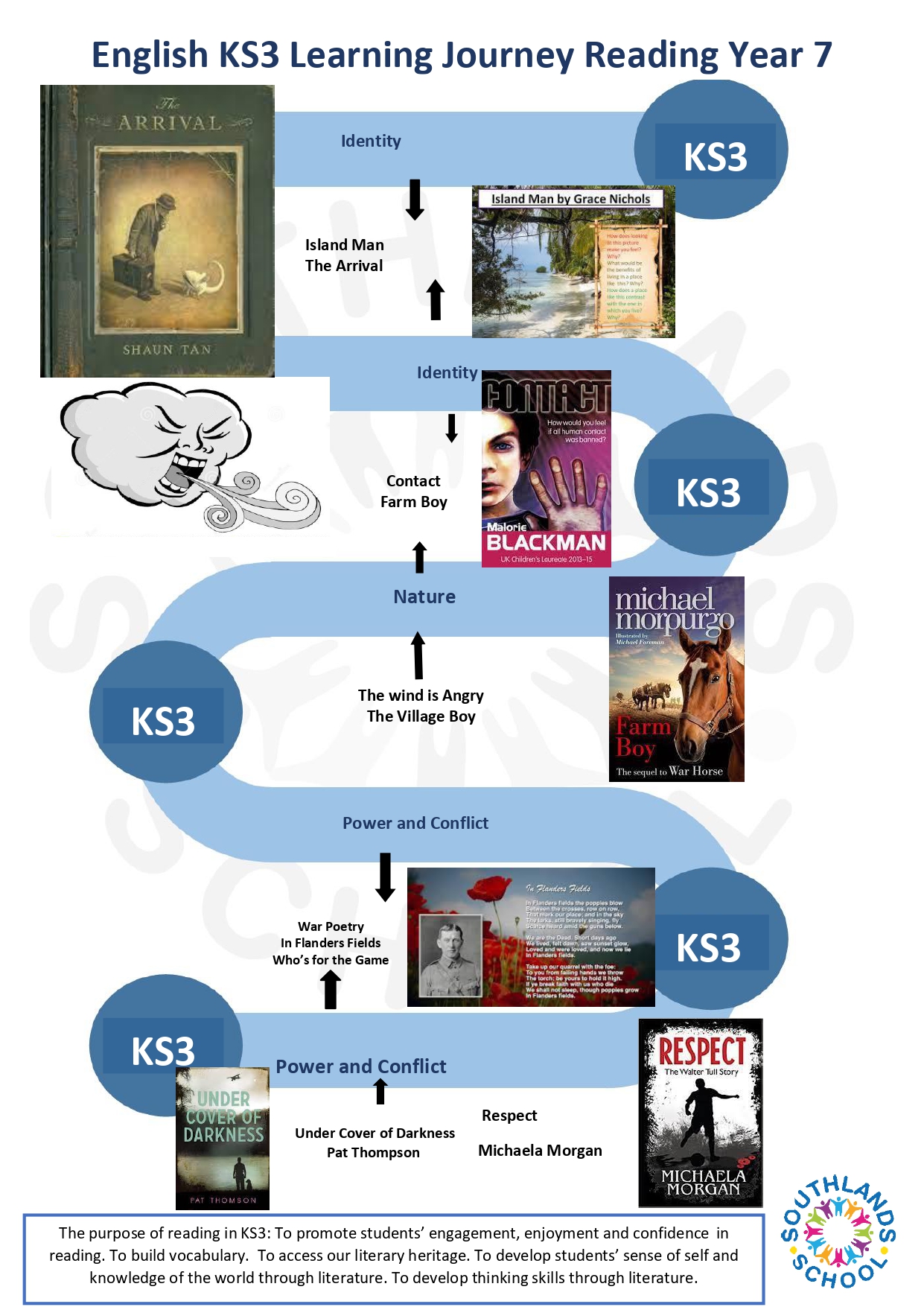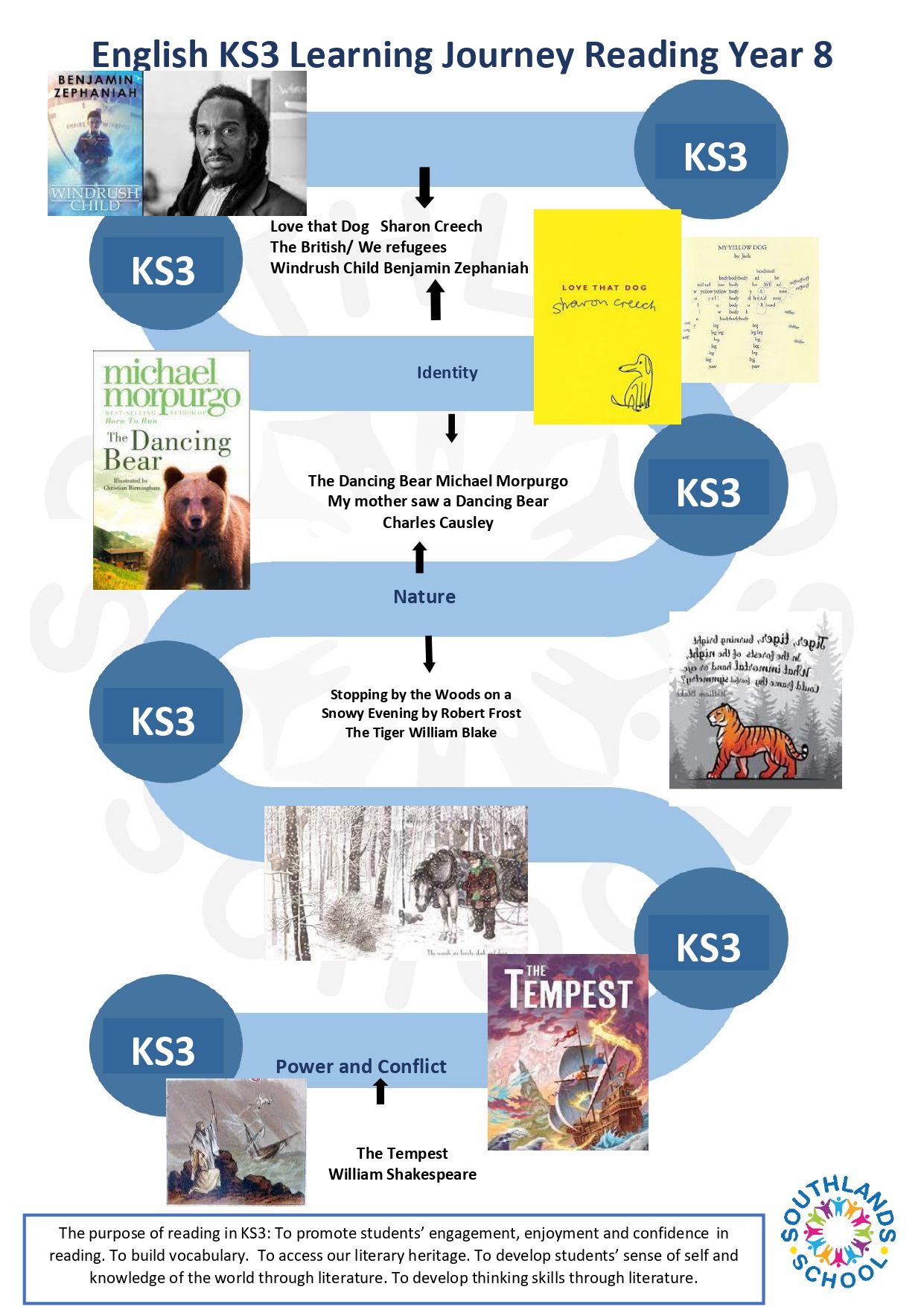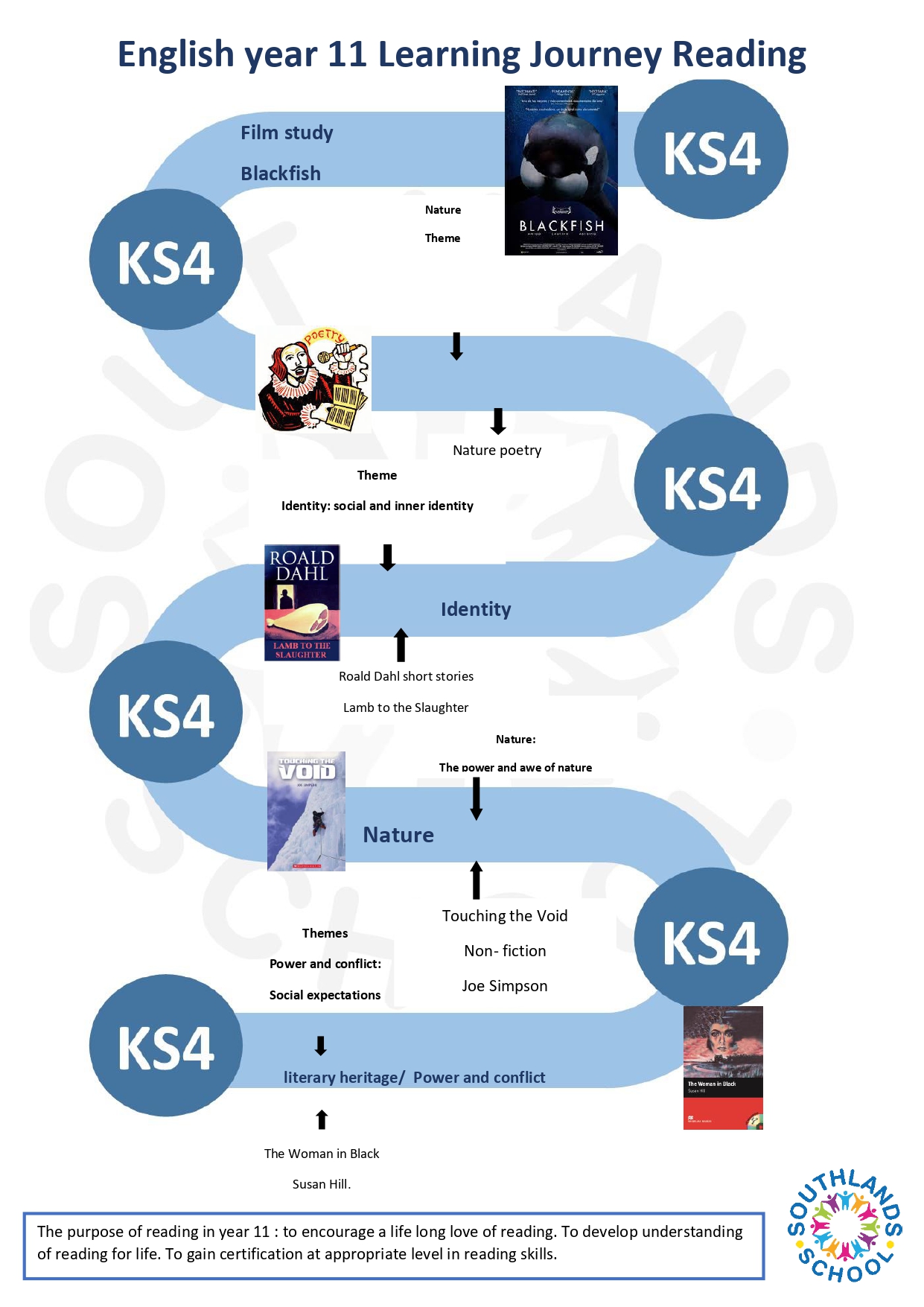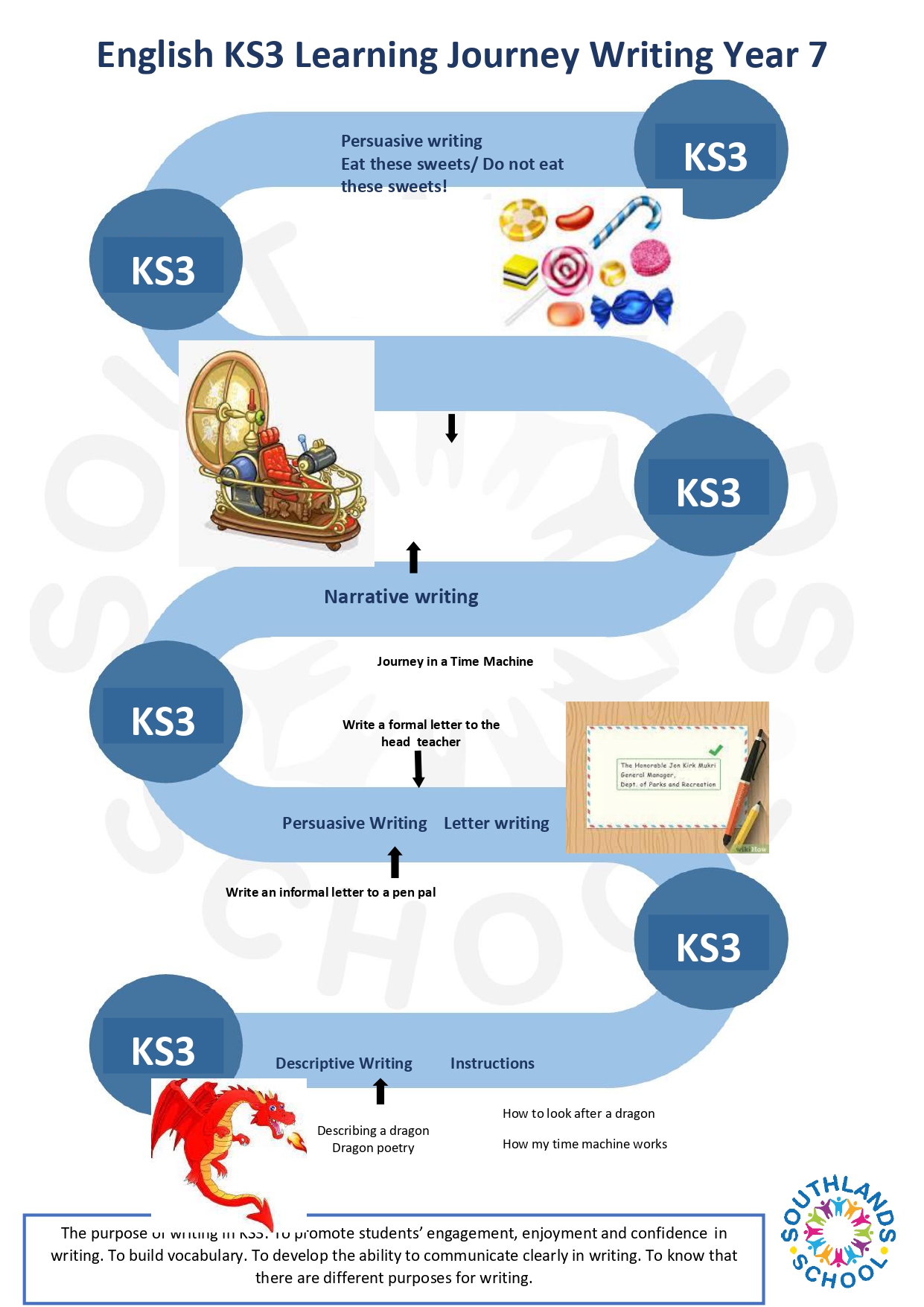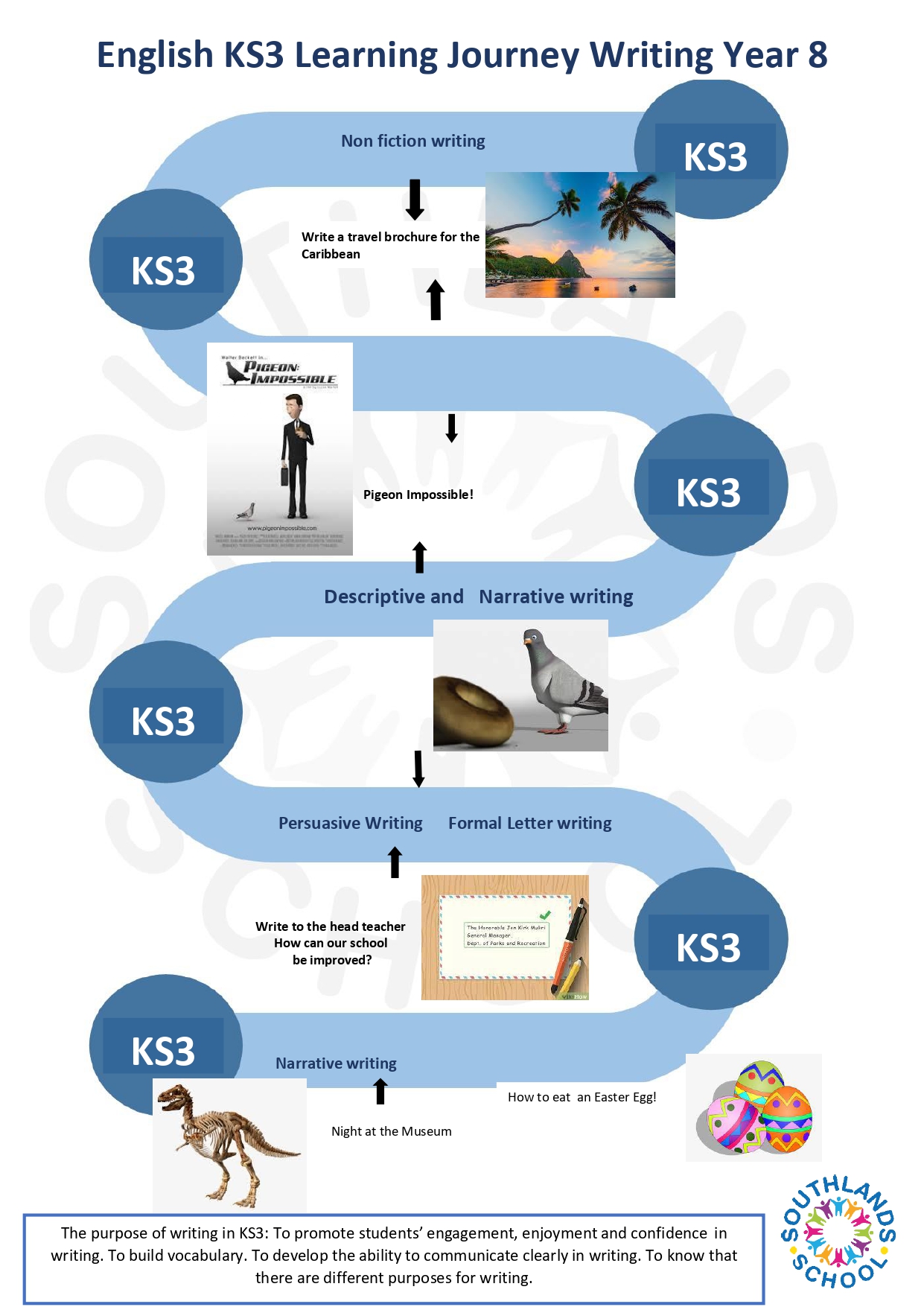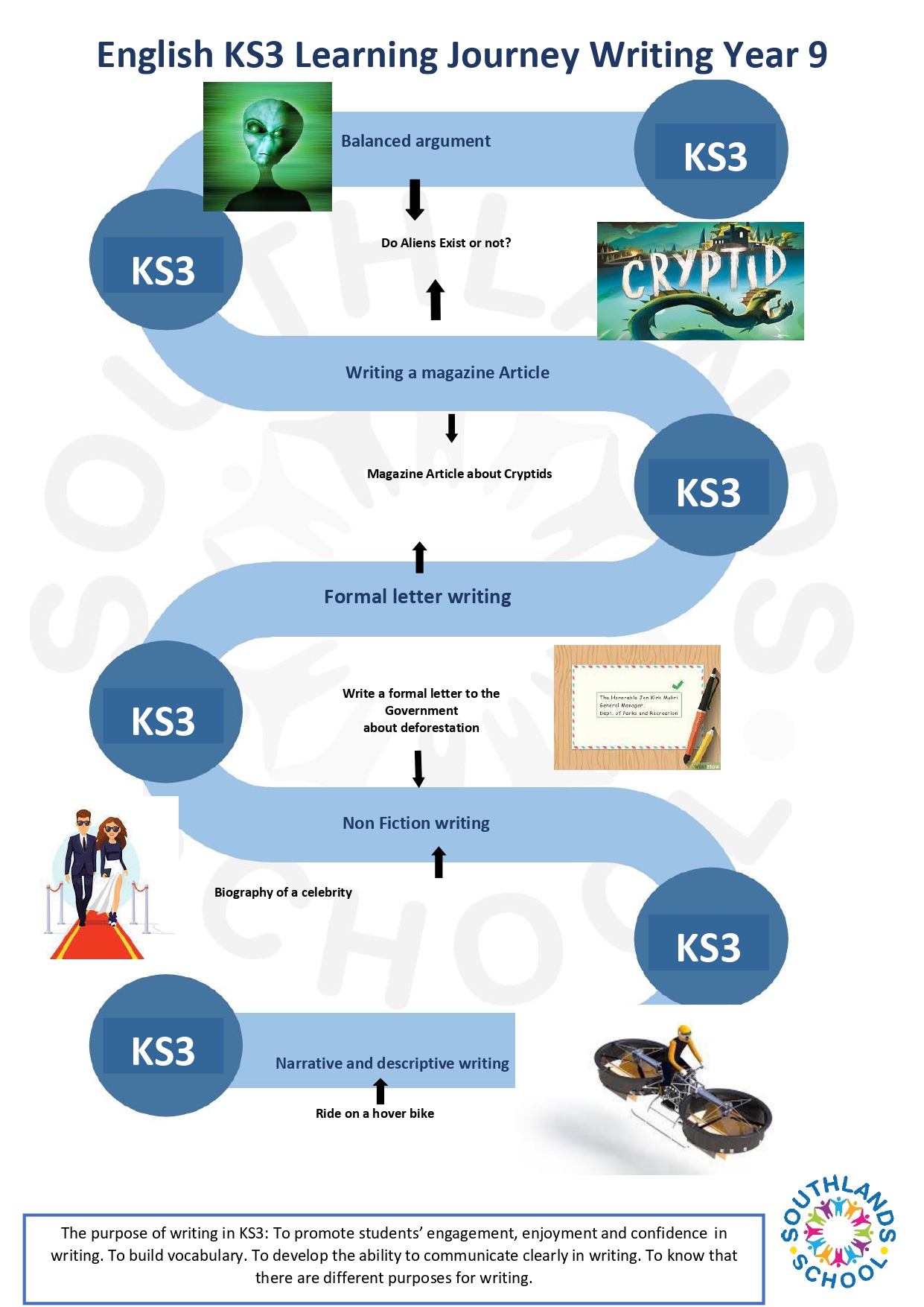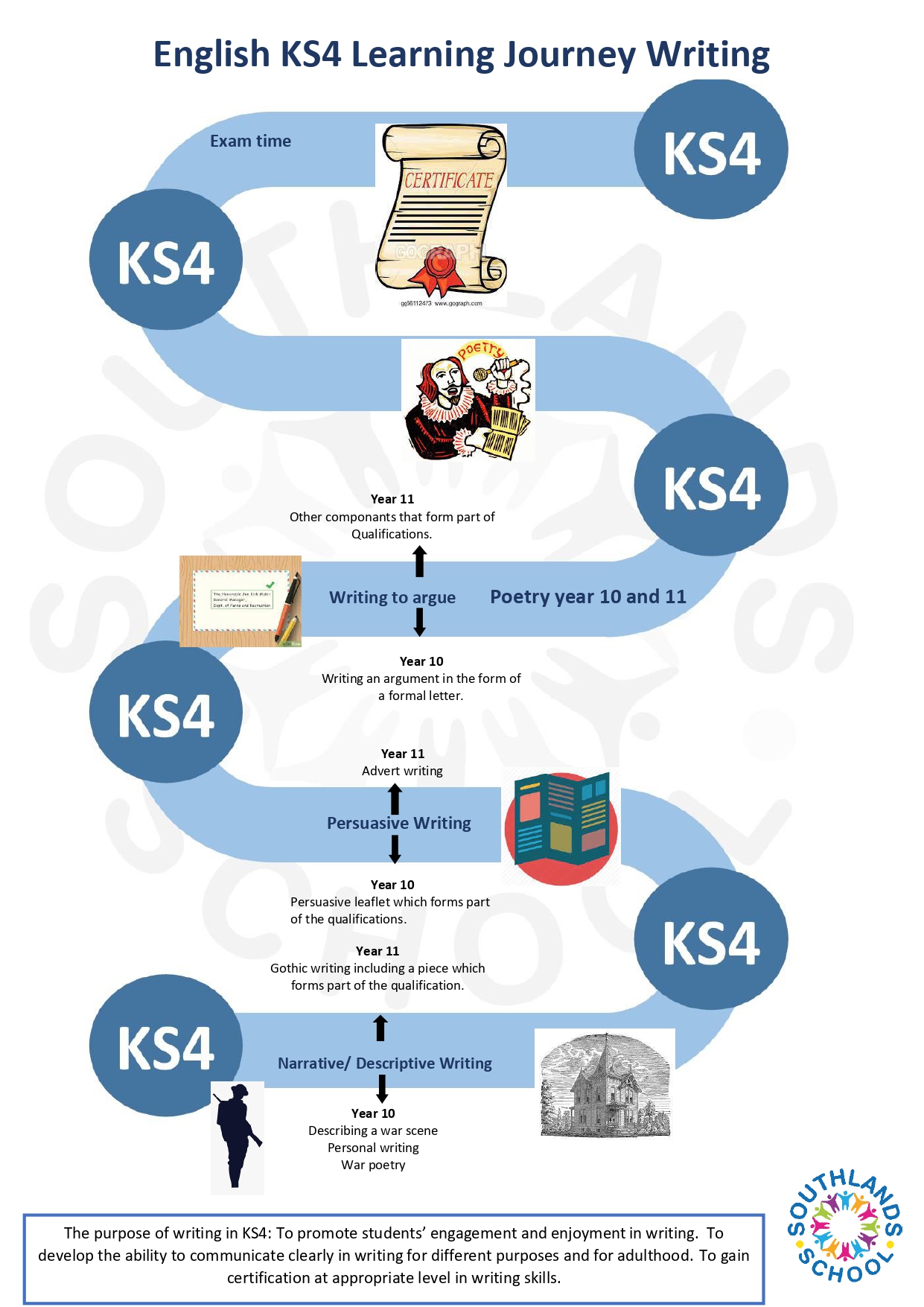English
CURRICULUM AIM
English at Southlands School is guided by the content and purpose of the English National Curriculum.
Students come to Southlands with much lower reading, writing and comprehension skills than their mainstream counterparts. We reach back to the KS2 curriculum to over learn these skills in order to best prepare our students for their qualification route in KS4.
Our Curriculum Design
Our curriculum is divided into two English focus areas: Literature and Language. This is because our knowledge of our cohort, who have multiple complex needs and learning difficulties, struggle to focus on a topic or task for long periods of time. They work better when work is presented in shorter bursts, whether it be a book or a piece of writing. They need regular breaks from working on a skill or topic. Therefore, we deliver a mixture of English Literature and Language. We use Rosenshine’s principles of learning to support our students to remember and build on learning and achieve a high success rate in tasks.
English Literature
Our literature curriculum is designed around a number of books which are studied for short periods. This also gives us more opportunity to capture the diverse interest of a higher number of students, many of whom have very specific and rigid interests.
In literature lessons, due to the significantly below average decoding skills of the cohort and difficulties with work being sent home, much of the reading is teacher led in order to maximise the number of students engaging with and understanding the text. Students will practise reading smaller chunks and extracts that have been adapted to suit their skill level. There is a strong focus on discussion to develop comprehension and to encourage confidence in speaking and forming opinions, as we are aware our students struggle with comprehension in particular.
English Language
In language lessons, due to our students’ limited vocabulary and lower SPAG skills, there is a focus on small steps to embed these skills. Settling tasks in lessons focus on exposing students to Tier 2 vocabulary. Vocabulary is built up during a scheme of work and extended via word mats and discussion sessions. Reach back grammar and punctuation skills are explicitly placed into the curriculum and built on year on year. We approach writing as a process that needs planning, idea sharing, modelling, composing and skill building if it is to be of high quality and these activities form part of every piece of writing. There is a focus on writing techniques built up from year 7. All students practise spellings that are suited to their ability regularly and have opportunities to place spellings in context so as to further build vocabulary. Speaking and Listening skills are explicitly worked on in language lessons in order to build confidence and speaking for different purposes. These strategies help to support our students in their qualification route in KS4.
Our Curriculum Aims
- To develop students’ literacy skills for the purpose of developing functional literacy into adulthood.
- To develop the ability to communicate clearly in writing for different purposes and for adulthood.
- To promote students’ engagement with and enjoyment of reading, writing and oracy.
- To develop a love of reading.
- To promote and develop the use of spoken language as a key skill for success in life.
- To expand students’ vocabulary as a key indicator for understanding the world, the self, relationships and other people.
- To develop students’ understanding and awareness of our cultural heritage through literacy.
- To develop students’ personal growth and understanding of themselves and our world through literature.
- For all students to gain appropriate accreditation at the end of KS4.
Please note that Southland's current qualification offer includes a pathway towards GCSE qualifications for our current year 10 and 11 students.
Southland's offers an adapted National Curriculum at KS3 to meet the needs of our students. Students will be assessed during KS3 to identify their individual needs and determine which qualification pathway is right for them at KS4. GCSE will not be part of our core offer.

